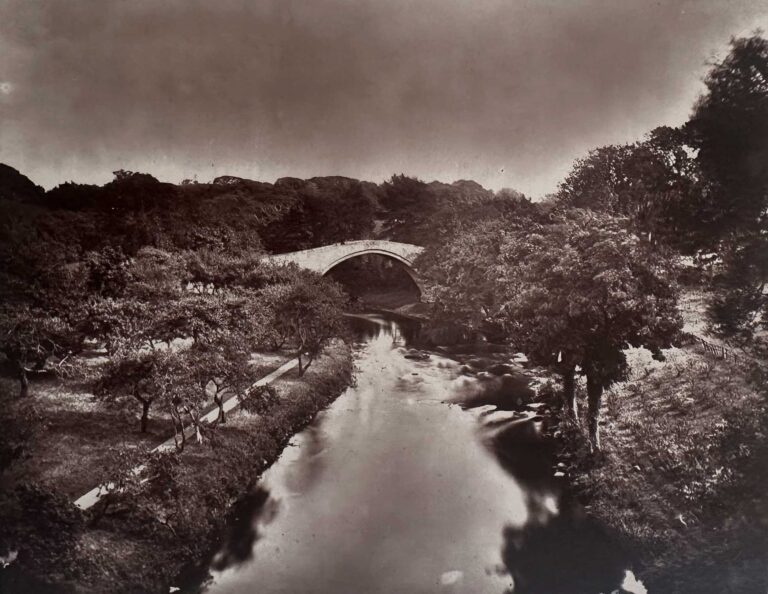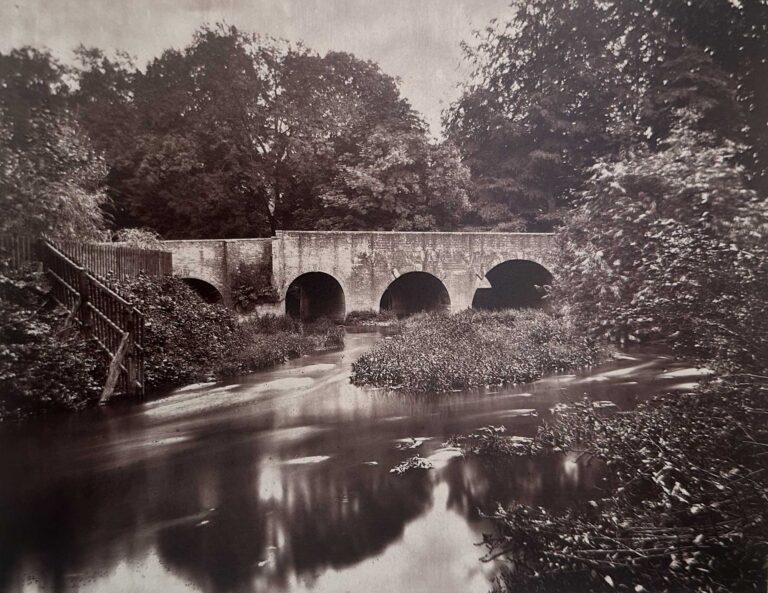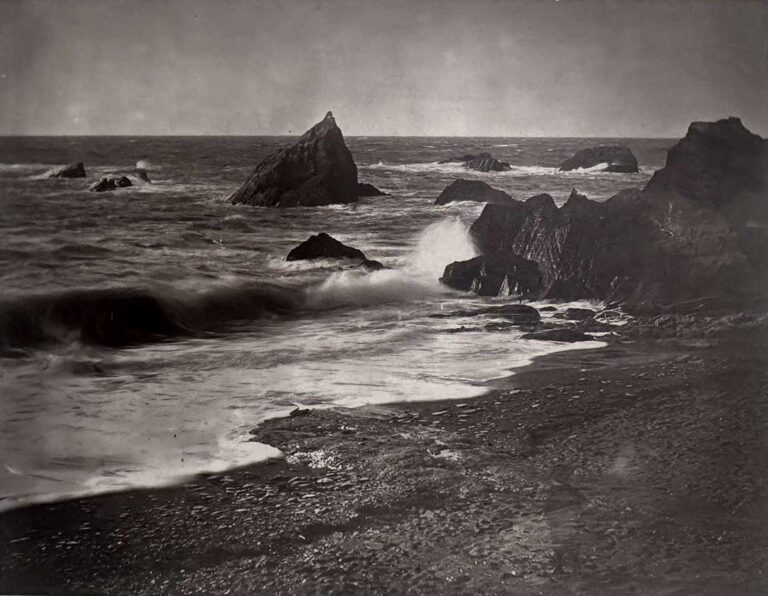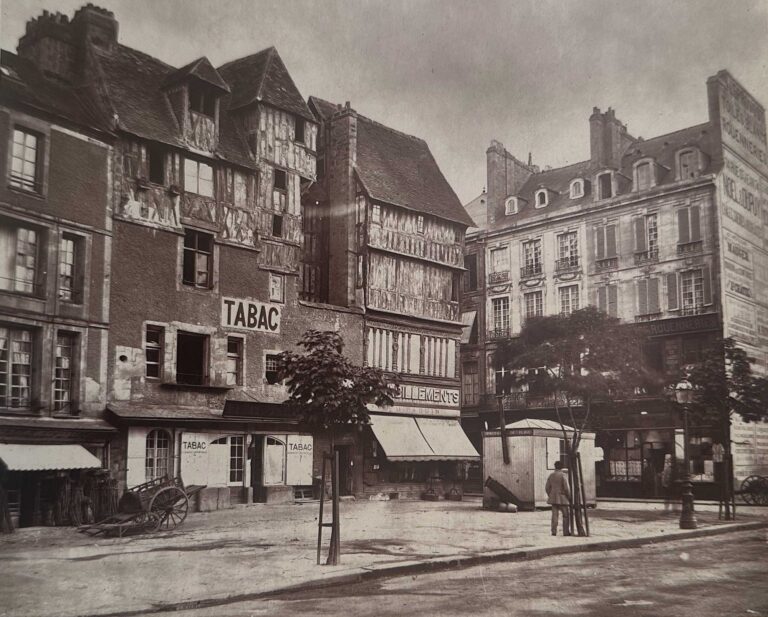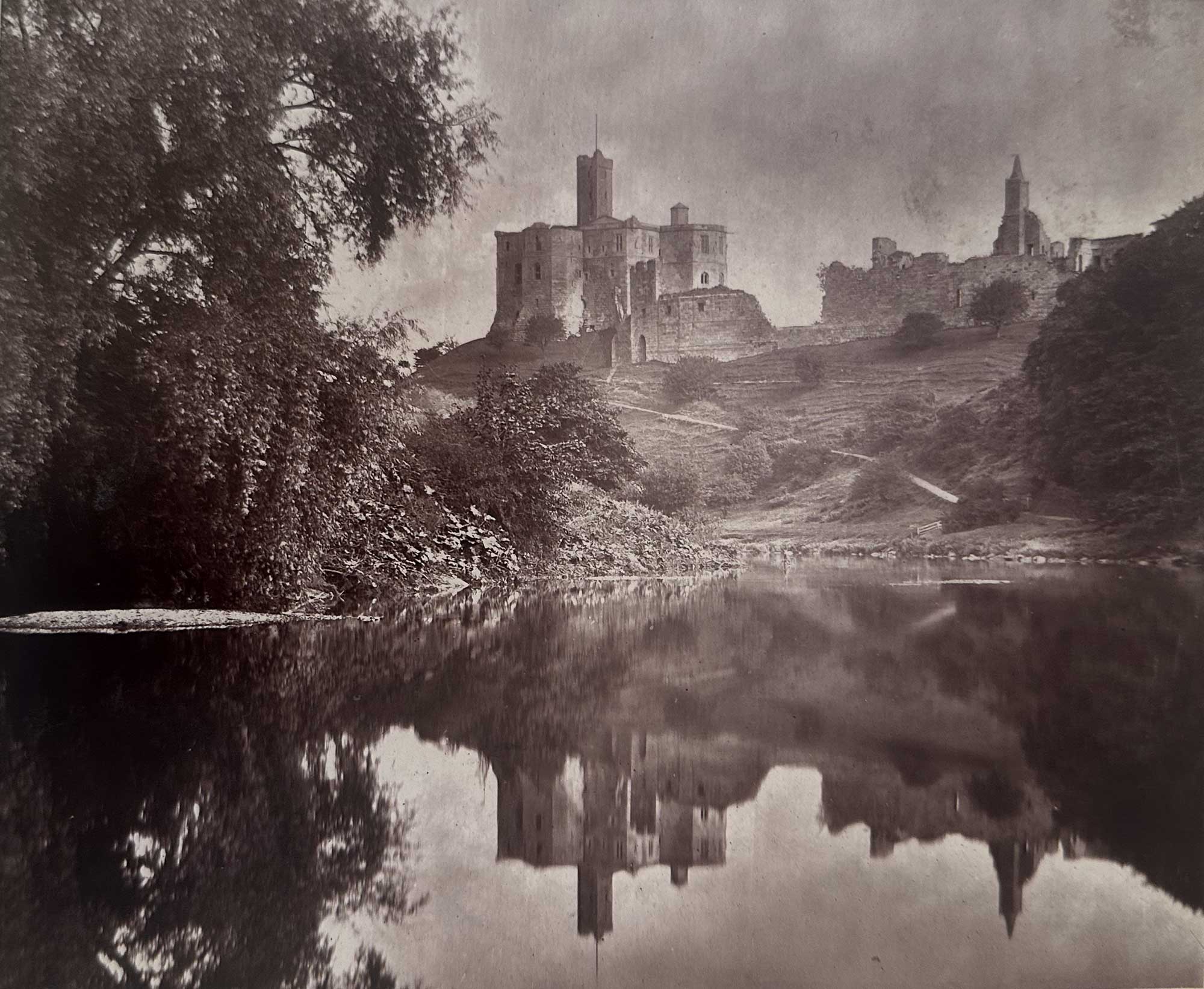
On the Coquet, Northumberland
Descriptive letterpress printed opposite this photograph:
ON THE COQUET, NORTHUMBERLAND.
THIS river-subject is the scene of Bishop Percy’s beautiful border-ballad. The ruins on the hill-top are those of Warkworth Castle⎯
” Warkworth proud of Percy’s line.”
From the smooth green slopes we obtain wide and charming views, seaward and landward, with the winding banks and hanging woods of the Coquet, a sweet little river almost surrounding the castle. The Coquet takes a bold sweep through the vale, and the sloping banks of the valley, along which the path leads, only being wooded, you see the whole amphitheatric sweep at once. Seaward, you may descry the Fern Islands, Bam-borough and Dunstanborough Castles- typical subjects for English painters.
Until they became possessed of Alnwick, this proud castle overlooking the river was the chief abode of the powerful Percies. As you descend the slope and pursue the path by the river-side until reaching the Hermitage, you become sensible of the profound seclusion and arcadian beauty of this remote piece of border scenery. Much of the broad lands around belonged from the earliest times to the Widdringtons: long before one of them fought upon his stumps at Chevy Chase. Dr. Percy has woven the natural features of the locality into his romantic poem. The woods that screen the Hermitage are densely luxuriant, but give glimpses through their foliage of the sandstone cliffs in which it is hewn. All is calm and dreamlike; the river dark and deep, yet translucent as the atmosphere; the trout leaping up at the May-fly, or sailing like fleet shadows near its clear, rocky bottom. Never could ancient eremite have had a more peaceful scene amidst which to live out the remnant of his days. The tradition is this : – The beautiful Isabel Widdrington, of Widdrington Castle, sent her lover, Sir Bertram, a splendid helmet on some high-day when he was feasting at Alnwick Castle with the Percies, together with the message, ” That if he aspired to her hand he must try the temper of that helm in some bold enterprise.” It was received with acclamation; Lord Percy, his friend, appointed a day to march against the Scots, on which occasion Sir Bertram, after many deeds of high valour, fell seriously wounded in the contest. He was carried to the border castle of Wark, and the fair Isabel, in her grief and remorse, set out on horseback accompanied by two guards to nurse him. She was met by a Scottish chief who, after slaying her attendants, carried her off into Scotland. On Bertram’s recovering, he and his brother, in different disguises, went in quest of her, and both discovering her retreat at the same time, though unknown to each other, the brother succeeded in rescuing her, and in carrying her away, when he was overtaken and slain by Sir Bertram before they recognized each other. Isabel was also, in endeavouring to prevent the mischief, accidentally but mortally wounded by her lover. In his anguish and despair, on learning the extent of his misery, Sir Bertram renounced the world, built churches and hospitals, according to the spirit of the age, and retiring here, scooped out this hermitage and chapel by the side of the Coquet, with the tomb and effigy of his lost love, and his own figure at her feet in an attitude of eternal penitence.
“Ah ! when I heard my brother’s name,
And saw my lady bleed,
I raved, I wept, I cursed my arm
That wrought the fatal deed.
In vain I clasp’d her to my breast, And closed the ghastly wound;
In vain I press’d his bleeding corpse, And raised it from the ground.”
